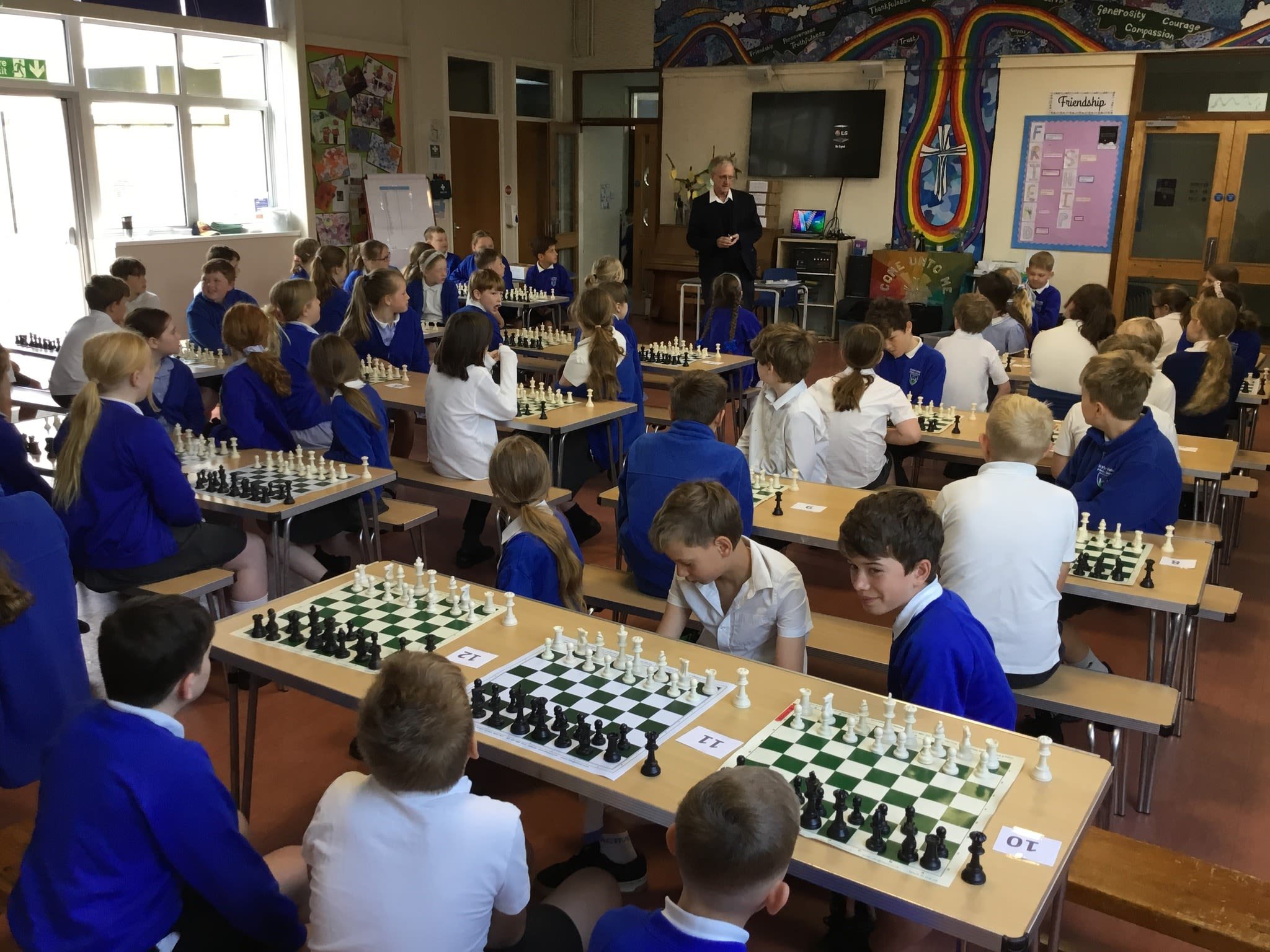
How can chess help your pupils?
Chess is an effective and affordable educational intervention, promoting key academic and social skills that children will use throughout their lives. The game helps them to think logically and solve problems, it develops sportsmanship and resilience and it teaches children to plan ahead and take responsibility for their actions.
Open to anyone regardless of gender, ethnicity, faith or disability, chess has also been positively linked with academic performance; see our research page for details of this emerging field. However, over recent years the game has suffered a decline in state schools and especially those from deprived areas - which is exactly where it can have the most benefit.
How can Chess in Schools and Communities help?
We work exclusively in state schools and give priority to the most disadvantaged areas. The most effective way to teach chess is as a full lesson-time class, but we can also provide an extra-curricular club. Children learn the game over 30 weeks, taught by one of our trained tutors (all with Enhanced DBS clearance). Our curriculum assumes no prior knowledge and progresses from the laws of the game to foundational tactics and strategy.
Your school will receive all the equipment (including chess sets, our curriculum, workbooks and other learning aids), free training for staff and entry to school activity days at the annual London Chess Classic. We can also provide you with free accounts for your pupils on age-appropriate online platforms (ChessKid for Y7 and below, Lichess for Y7+).
Most of our work is with primary schools but we do also run enrichment lessons and chess clubs in secondary schools. You can read more about this work here. As well as working in mainstream schools, we are also very pleased to be operating in hospital schools, special schools, and PRUs.
Chess is a game which often appeals to children with special educational needs, and one in which they may excel. A growing body of research and our own extensive experience over the last fifteen years suggests that chess can have a positive effect on outcomes for SEN children, improving behaviour, concentration, self-esteem, and combatting social exclusion. You can read more about this here.
How can your school get involved?
Over the past 15 years Chess in Schools and Communities has supported over 2,700 schools with lessons, clubs, equipment, and training. If you would like to discuss how we could work with your school, please complete our Join Us form and we will be in touch.
We currently teach weekly in over 300 schools across England and Wales. You can read about these schools here.




